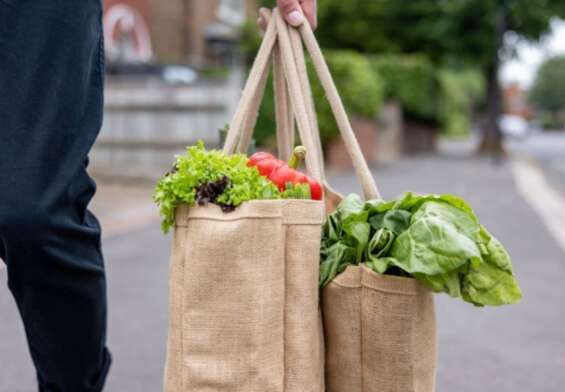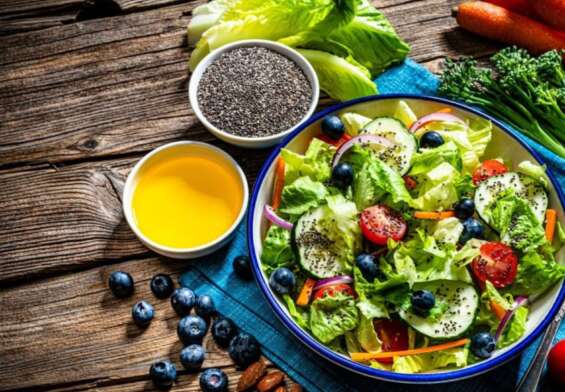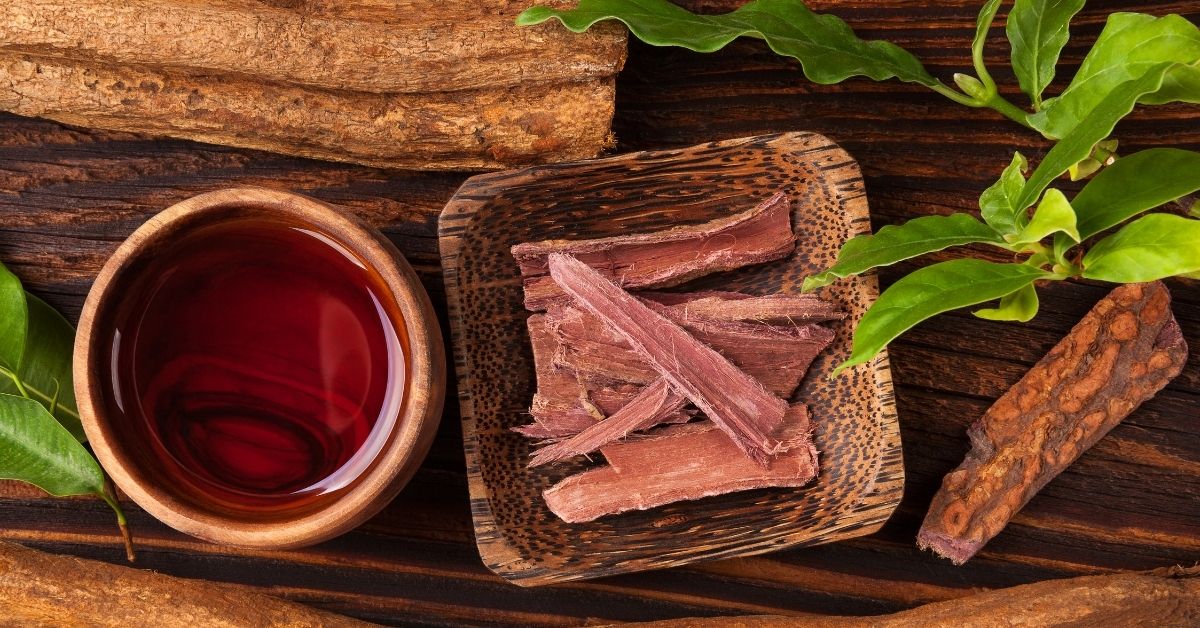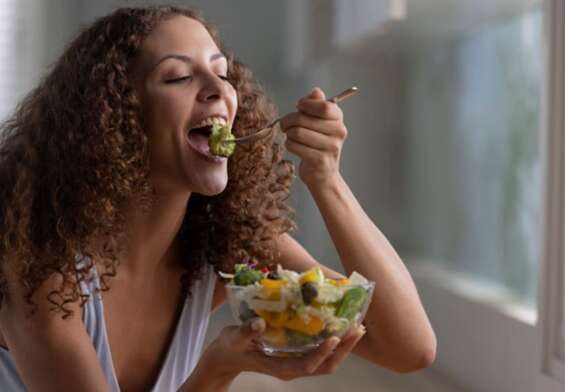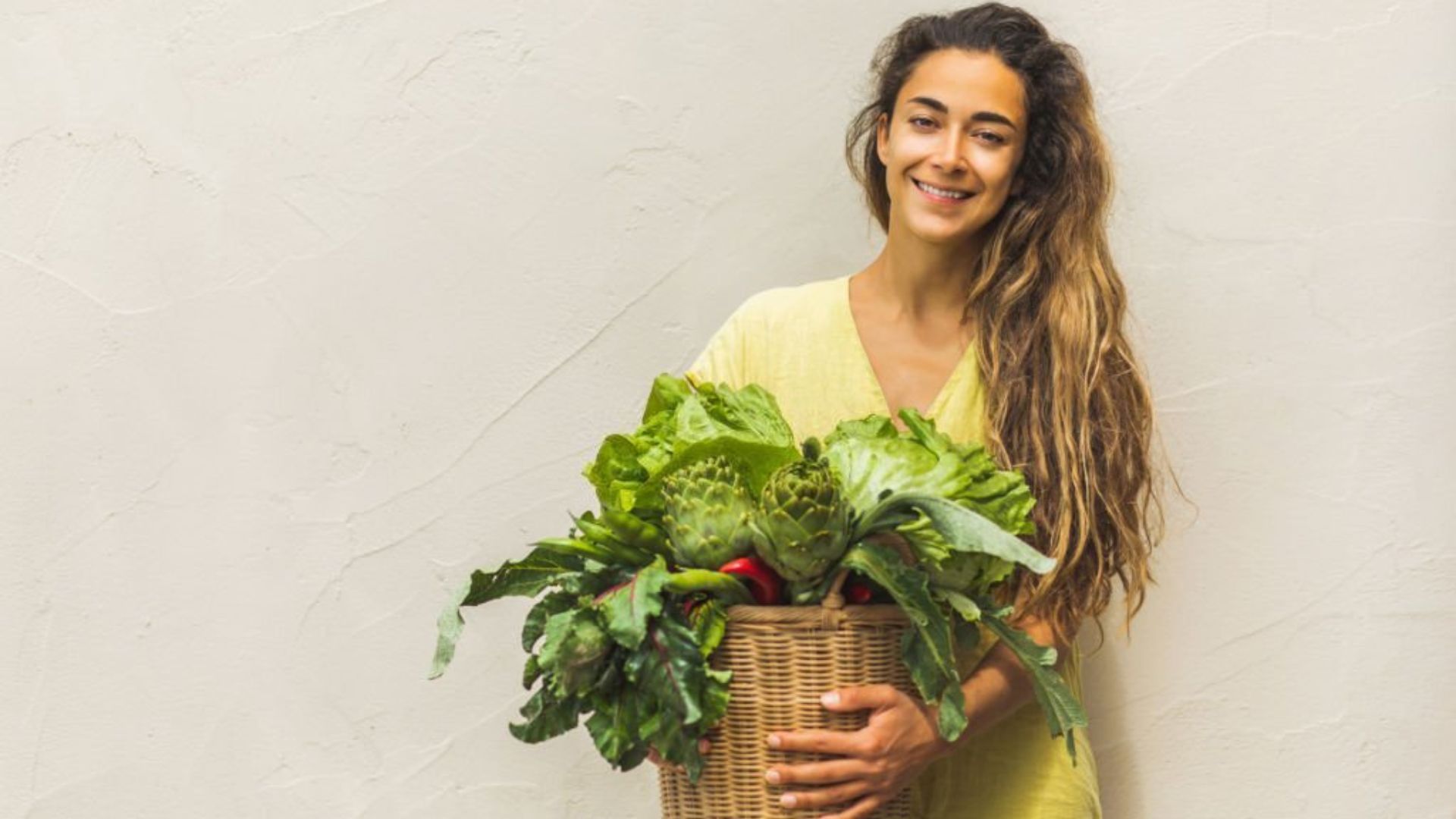
Vegan Diet: How to Go Plant-Based and Improve Your Health
The vegan diet is one of the most popular dietary trends of recent years. It is based on a philosophy of avoiding the use of animals and animal products, such as dairy, eggs, and honey. Instead, vegans opt for plant-based alternatives, like soy milk and nut butter. This diet offers a variety of health benefits, including improved digestion, weight loss, and reduced risk of chronic diseases. Additionally, the vegan diet is environmentally friendly, as it reduces the carbon footprint associated with animal agriculture. Whether you are looking for improved health, environmental sustainability, or ethical reasons, the vegan diet may be the right choice for you.
Five Reasons to Try a Vegan Diet
- You Can Finally Eat as Much Cheese as You Want: Sure, you won’t be eating real cheese, but there are vegan versions of just about every cheese imaginable. From vegan feta to vegan blue cheese, you can indulge your cheese cravings without any of the guilt.
- Won’t Have to Worry About Egg-on-Your-Face: We all know that eggs can be a bit messy, especially when you’re cooking them for breakfast. But with a vegan diet, you won’t have to worry about egg-on-your-face anymore!
- You’ll Finally Have an Excuse to Wear Birkenstocks: Nothing says “I’m a vegan” like a pair of Birkenstocks. Plus, they’re so comfy, you’ll never want to take them off!
- Get to Brag About How Healthy You Are: Vegans are always bragging about how healthy they are, so why not join in on the fun? You’re sure to get compliments from your friends and family when they hear you’re going vegan.
- You Can Finally Tell People You’re a Vegan: Finally, you can proudly tell people you’re a vegan and get some major bragging rights. That’s enough of a reason to try a vegan diet, right?
How to Transition to a Vegan Diet
Are you ready to make the switch to a vegan diet? You’re in luck! Going vegan isn’t as hard as you might think. With just a few simple tips, you could be vegan in no time!
Start with small changes. Don’t try to go cold turkey (pun intended). Start by swapping out some of your favorite dishes with vegan alternatives. If you’re used to eating a lot of cheese, try vegan cheese instead. If you’re a fan of eggs, there are plenty of egg substitutes you can use in recipes.
Stock up on vegan staples. Before you make the switch, stock up on vegan staples like plant-based milk, vegan meats, and vegan cheeses. This will make it easier for you to whip up vegan meals when you’re running low on time.
Explore vegan restaurants. Going out to eat can be challenging when you’re trying to stick to a vegan diet. But don’t worry—there are plenty of vegan-friendly restaurants out there. Do a quick search online and you’ll find plenty of options near you.
Don’t be afraid to experiment. Vegan cooking isn’t all about salads. There are plenty of vegan dishes that are just as tasty as their non-vegan counterparts. Get creative in the kitchen and don’t be afraid to experiment with new recipes.
Be gentle with yourself. Going vegan can be a big lifestyle change and it’s okay if it takes you some time to adjust. Don’t beat yourself up if you slip up—just keep trying and you’ll eventually get the hang of it.
With just a few simple tips, you can transition to a vegan lifestyle in no time! So don’t be afraid to give it a try. Who knows—you might just find that you love it!
The Health Benefits of a Vegan Diet
Are you a vegan looking to learn more about the health benefits of a vegan diet? Then look no further! We’ve got the scoop on why this lifestyle is so great for your health, and even a few jokes to make it more enjoyable.
First of all, vegans get to reap the rewards of a nutrient-rich diet. Thanks to the abundance of fruits and veggies, seeds, legumes, and nuts, vegans get a lot of essential vitamins and minerals. Plus, plant-based proteins can be just as satisfying as animal-based proteins, but without saturated fat.
Vegans also have a lower risk of developing chronic diseases like heart disease, diabetes, and obesity. That’s because vegan diets are typically low in cholesterol and saturated fat, and high in fiber and antioxidants. And if that’s not enough, vegans also tend to have lower blood pressure and healthier cholesterol levels.
But the health benefits of a vegan diet don’t end there. Eating plant-based foods can also help reduce inflammation, which can in turn reduce the risk of certain types of cancer. And since vegan diets typically contain fewer calories, vegans can also enjoy a healthy weight without having to obsess over calories and counting points.
So, if you’re looking for a healthier way of life, then why not try out a vegan diet? And don’t forget to have a little fun along the way! After all, as the old saying goes, “You are what you eat.” So if you want to be healthy, then you better eat healthy – and vegan!
How to Prepare Delicious Vegan Meals
Are you ready to become a vegan rock star in the kitchen? Embrace the vegan lifestyle and learn how to prepare delicious vegan meals with ease. Here are some tips to help you out:
- Get the Basics: Before you start cooking, make sure you have the basics on hand. Stock your kitchen with vegan-friendly ingredients such as quinoa, nuts, beans, lentils, tofu, tempeh, nutritional yeast, and non-dairy milk.
- Spice It Up: Create flavor with herbs and spices! Experiment with seasonings like turmeric, cumin, chili powder, ginger, and garlic powder.
- Think Out of the Box: Don’t be afraid to try new ingredients. Get creative and add unusual items like tamari, tahini, miso, nutritional yeast, and seaweed to your dishes.
- Get Creative: Find ways to use your vegan ingredients in surprising ways. For example, make vegan sushi with quinoa and avocado or use tofu as a substitute for scrambled eggs.
- Have Fun: Vegan cooking doesn’t have to be a chore. Embrace the challenge and have fun in the kitchen. Who knows, you may even discover some new favorite recipes!
Now that you know the basics of vegan cooking, take the plunge and try it out! You may be surprised at how delicious vegan meals can be. Bon appetit!
The Pros and Cons of a Vegan Diet
The Pros of a Vegan Diet
- You’ll save the animals: When you go vegan, you’ll be helping the animals you used to eat. Sure, the cows, chickens, and pigs might not be grateful, but you can rest easy knowing you’ve done your part.
- You’ll save the planet: Animal agriculture is a major contributor to climate change and loss of biodiversity. Going vegan can reduce your carbon footprint and help restore the environment.
- You’ll save money: There are plenty of vegan foods that are much cheaper than animal-based products. Plus, you won’t have to buy expensive grocery store items like bacon and cheese.
The Cons of a Vegan Diet
- You’ll miss out on some tasty foods: Let’s face it: bacon is delicious. Going vegan means you won’t be able to enjoy all the same foods you used to.
- You’ll have to learn how to cook: Unless you’re okay with eating a lot of vegetables and tofu, you’ll need to learn how to cook vegan meals. This means finding recipes, buying the right ingredients, and spending time in the kitchen.
- You’ll have to be extra careful when eating out: It can be hard to find vegan options at restaurants, especially if you’re dining with non-vegans. You may have to ask a lot of questions and even bring your own food to make sure you’re getting a vegan meal.
How to Find Plant-Based Alternatives for Common Animal Products
Are you thinking about going plant-based but don’t know where to start? Don’t worry, we’ve got you covered! Here’s a comprehensive guide on how to find plant-based alternatives for common animal products.
First up, let’s talk cheese. If you’re giving up cheese, you’re probably wondering what in the world you’ll put on your pizza now. Fear not, because there are plenty of dairy-free cheese alternatives out there. From vegan cheddar to vegan mozzarella, the options are endless. Or, if you’re feeling adventurous, you can try making your own cheese with nuts, seeds, and plant-based milk.
Next, let’s discuss meat. If you’re giving up meat, you’re probably feeling a bit overwhelmed. But don’t worry, you won’t have to give up burgers and tacos forever. There are so many delicious plant-based meat alternatives out there. From seitan to tempeh, you can find plant-based versions of all your favorite dishes. Plus, you don’t have to sacrifice flavor either.
Finally, we have eggs. If you’re giving up eggs, you’re probably wondering what you’re going to make for breakfast. Well, you can still have omelets, quiches, and scrambles thanks to vegan egg substitutes. These substitutes are made with ingredients like flax seeds, tofu, and chickpea flour. They taste just as delicious as the real thing – but with less cholesterol and fat.
So there you have it! Going plant-based doesn’t have to be hard. With a little research and creativity, you can find plant-based alternatives for all your favorite animal products. So don’t be afraid to give it a try!
What Are the Common Nutrient Deficiencies on a Vegan Diet?
Ah, veganism! A noble and virtuous way of life, provided you don’t suffer from any of the common nutrient deficiencies that come along with it. While the plant-based diet has many benefits, it can also mean dietary deficiencies if you’re not careful. So, what are the common nutrient deficiencies on a vegan diet? Let’s break it down.
First up, we have Vitamin B12. This essential vitamin is typically only found in animal products, including meat, eggs, and dairy. Vegans can get their B12 through fortified foods or supplements, so make sure you stock up!
Next is Vitamin D. While the sun is a great source of Vitamin D, it’s difficult to get enough of it from the sun alone on a vegan diet. Make sure to get your daily dose from fortified foods or a supplement.
We’ve also got Omega-3 fatty acids. These are typically found in fish and seafood, so vegans need to get creative with their sources. Good options include flaxseed, chia seeds, and walnuts.
Finally, we have iron. This important mineral is found in plant-based foods like beans, dark leafy greens, and whole grains, but can be more difficult for vegans to absorb due to the lack of Vitamin C found in animal products. Eating iron-rich foods with Vitamin C-rich food can help your body absorb more iron.
So there you have it, the four common nutrient deficiencies on a vegan diet. So stock up on your B12, Vitamin D, Omega-3s, and iron, and you’ll be well on your way to a healthy and balanced vegan lifestyle.
How to Be a Healthy Vegan Athlete
Are you an athlete looking to make the switch to a vegan lifestyle? If so, congratulations! Welcome to the world of plant-based eating! Being a vegan athlete can be a healthy, satisfying, and rewarding choice. But it’s not always easy to make the transition, especially if you’re used to a diet high in animal protein. Don’t worry, though — with a little bit of planning and some creative thinking, you can be a healthy vegan athlete in no time. Here are some tips to get you started:
- Get familiar with plant-based proteins. Quinoa, seitan, tofu, tempeh, and other plant-based proteins can help you meet your protein needs while following a vegan diet. Experiment to find your favorites — you’ll be surprised at how delicious they can be!
- Prioritize nutrient-dense foods. Fruits, vegetables, legumes, nuts, and seeds are packed with essential vitamins, minerals, and antioxidants — all of which are crucial for athletes. Make sure to get plenty of these nutrient-dense foods in your daily diet.
- Supplement if necessary. If you’re having trouble meeting your nutrient needs with food alone, consider taking a vegan multivitamin or a B12 supplement.
- Hydrate, hydrate, hydrate. Hydration is important for any athlete, vegan or not. Make sure to get plenty of fluids throughout the day.
- Have fun in the kitchen. Being a vegan athlete doesn’t have to be boring! Get creative in the kitchen and try new recipes, mix and match ingredients, and experiment with spices. You’ll be sure to find some delicious and healthy vegan meals that you’ll love.
Following these tips will help you make the transition to a vegan lifestyle and become a healthy vegan athlete. So don’t worry — you can still be a fit, active, and successful athlete while following a vegan diet. Good luck!
What Are the Different Types of Vegan Diets?
Veganism is a way of life that aims to eliminate animal products from one’s diet and lifestyle. But it turns out there are many types of vegan diets, each with its own set of rules and regulations. So, if you’re considering going vegan, here’s a look at some of the different types of vegan diets you can choose from.
The Low-Carb Vegan: This diet focuses on eliminating carbs from your diet as much as possible. So if you’re looking to cut back on grains and other high-carb foods, this is the perfect vegan diet for you.
The Junk-Food Vegan: We all know that vegans don’t eat junk food, right? Wrong! This type of vegan diet focuses on indulging in all the vegan junk food your heart desires. Think pizza, Oreos, french fries, and other delicious vegan treats.
The Raw Vegan: This diet is all about eating raw fruits and veggies, nuts, seeds, and sprouted grains. So if you’re looking for a super healthy vegan diet, this is the one for you.
The Flexitarian: Don’t want to give up meat entirely? No problem! The flexitarian diet allows for the occasional consumption of animal products, as long as the majority of your diet is still vegan.
The 80/20 Vegan: This diet is all about balance. You’ll eat vegan 80 percent of the time, and indulge in non-vegan foods for the other 20 percent. So if you’re looking for a vegan diet that’s not too strict, this could be the one for you.
The Mediterranean Vegan: This vegan diet emphasizes the use of olive oil, nuts, legumes, and other Mediterranean staples. So if you’re looking for a diet full of flavors and spices, this is the one for you.
So, as you can see, there are plenty of different types of vegan diets to choose from. Whether you’re looking for a strict low-carb diet or a more flexible flexitarian diet, there’s a vegan diet that’s perfect for you. So go ahead and give veganism a try!
How to Manage Veganism and Social Gatherings
Are you a vegan attending a social gathering and worried about what to eat? Don’t worry—we’ve got you covered! Here are some tips for managing veganism and social gatherings.
- Bring your own food. If you’re unsure of what food will be served at a gathering, bring your own vegan-friendly snacks. This way, you’ll always have something to eat!
- Get creative. Don’t be afraid to get creative with your food choices. Just because it’s vegan doesn’t mean it has to be boring! Try experimenting with different flavors and spices to make your food stand out.
- Educate yourself. Before attending a gathering, make sure you know what types of food will be served. This way, you can make sure there are vegan options available.
- Be prepared. If you’re attending a potluck, prepare a vegan dish to share with everyone. Not only will it be appreciated by other vegans, but it will also show your non-vegan friends that vegan food can be delicious.
- Speak up. Don’t be afraid to speak up if you feel like your dietary needs aren’t being met. Let the host know that you’re vegan and what kind of food you’d like to have available.
By following these tips, you can make sure that you have a great time at social gatherings while still staying true to your vegan lifestyle. So don’t be intimidated—with a little bit of preparation, you can enjoy delicious vegan food and have a great time!
Tips for Eating Out at Vegan-Friendly Restaurants
- Be prepared for some questions. When ordering at a vegan-friendly restaurant, you can expect the server to ask you a lot of questions. Be prepared to explain why you’re vegan, what you can and can’t eat, and what you’d like as a substitution.
- Bring your own condiments. A lot of restaurants offer non-vegan condiments, so it’s a good idea to bring your own vegan-friendly sauces. You can never have too much Sriracha!
- Check the menu online before you go. Not all vegan-friendly restaurants have the same menu, so make sure to check online beforehand so you know what to expect. That way, you won’t be disappointed if something isn’t available.
- Be patient. Vegan-friendly restaurants tend to be a bit slower than other places because of the extra attention they have to give to vegan orders. So don’t be surprised if your food takes a little bit longer.
- Don’t forget to tip. Just because the food is vegan doesn’t mean you don’t have to tip! Make sure to leave a tip to show your appreciation for the extra effort the kitchen staff put into your meal.
- Have fun! Eating out at a vegan-friendly restaurant can be a great experience. Enjoy the atmosphere and remember to smile – you’re doing your part to make the world a better place!
Conclusion
In conclusion, a vegan diet is a healthy and sustainable way of eating that can have many benefits, including improved health, weight loss, and reduced environmental impact. It is important to ensure that vegan diets are well-planned and balanced to ensure that all essential nutrients are being consumed. With careful planning and research, a vegan diet can be a healthy, nutritious, and delicious way of life.



